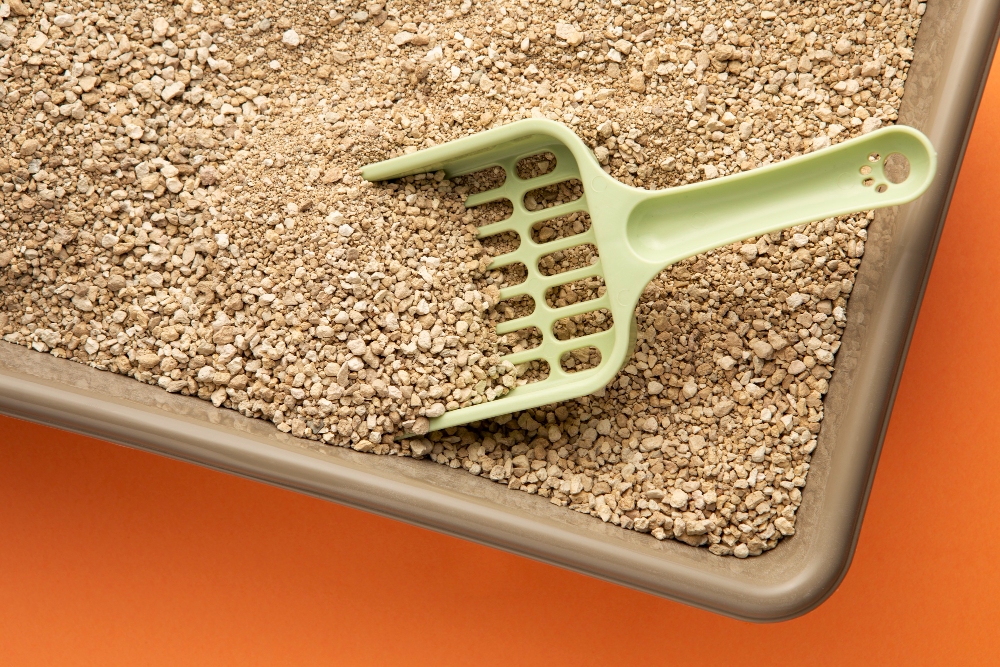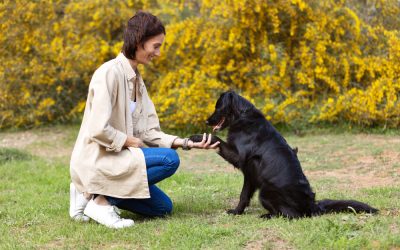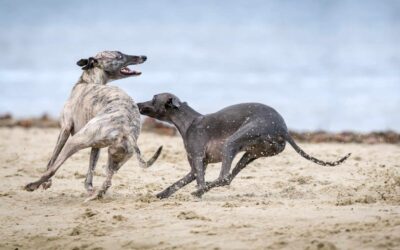Why Dogs Eat Cat Poop And How To Stop It

If you’ve ever caught your dog sneaking into the litter box for a snack, you’re definitely not alone. While it might seem downright disgusting to us, this behavior, called coprophagia, is actually quite common among dogs. Still, it’s understandable that as a loving pet owner, you’d want to know why it happens and what you can do about it.
Let’s explore why your dog might be tempted by cat poop, what health concerns you should watch for, and some simple, caring ways to keep both your dog and cat safe and happy.
Why This Happens: Getting to Know Your Dog’s Instincts
Dogs are natural scavengers. Their amazing sense of smell draws them to things we’d rather they avoid, like cat poop. From a dog’s perspective, cat feces can actually smell and even taste appealing because they often contain leftover fats and proteins. Sometimes, dogs turn to eating cat poop because:
- They’re curious or bored. Exploring the world with their mouth is normal dog behavior.
- They might have nutritional gaps. If your dog’s diet is lacking in certain nutrients, they could seek out other sources, even if it’s something as unappealing to us as cat poop.
- It’s a learned habit. Puppies may imitate their mother or other dogs, and if not corrected, it can become a routine.
Symptoms of Dogs Eating Cat Poop
While occasional consumption of cat feces may not cause immediate concerns, prolonged or excessive ingestion can lead to various symptoms. Here are some signs to watch out for:
- Gastrointestinal Issues: Vomiting, diarrhea, loss of appetite, and abdominal discomfort can all be indicators that your dog has consumed cat feces.
- Weight Loss: If your dog is consistently eating cat poop, they may experience weight loss due to the lack of proper nutrition or potential parasitic infections.
- Lethargy and Weakness: Ingesting harmful bacteria or parasites from cat feces can cause your dog to feel lethargic, weak, and generally unwell.
- Skin or Coat Issues: Certain parasites or nutritional deficiencies can manifest in skin problems, such as dull or dry coats, excessive shedding, or skin irritations.
- Behavioral Changes: Some dogs may exhibit behavioral changes, such as increased aggression, anxiety, or restlessness, after consuming cat feces.
How to Help: Practical Ways to Manage or Prevent This Behavior
As written in the American Kennel Club article: “The easiest way to prevent your dog from eating cat poop, according to veterinarians, is to place the cat litter box in a spot where your dog can’t access it. Dog gates are great at keeping dogs out without getting in your cat’s way and can also give your cats space of their own.
If you can’t keep your dog away from the litter box, you can invest in a covered cat litter box with a closed top or a “dog-proof” top-entry cat litter box that makes it harder for dogs to get in.
Sometimes, the cat poop in question is out of your control. If neighborhood cats are pooping in your yard, there is little you can do to prevent your dog from eating it, other than trying to repel the cats from your yard in the first place. If this is the case, take your dog in for regular visits to the veterinarian to make sure they haven’t contracted any internal parasites from their scavenging.”
Health Risks of Dogs Eating Cat Poop
There are many potential health risks associated with this behavior:
- Parasites: Cat feces can harbor various parasites, such as roundworms, hookworms, and tapeworms. These parasites can be transmitted to dogs and cause serious health issues, including gastrointestinal problems, weight loss, and even organ damage.
- Bacterial Infections: Cat feces can also contain harmful bacteria like Salmonella, E. coli, and Campylobacter. These bacteria can cause diarrhea, vomiting, and other gastrointestinal issues in dogs.
- Toxoplasmosis: This is a parasitic disease caused by the Toxoplasma gondii parasite, which can be present in cat feces. While it may not affect dogs directly, it can pose a risk to pregnant women or individuals with compromised immune systems if they come into contact with the infected feces.
- Intestinal Blockages: In some cases, dogs may ingest large amounts of cat litter or other non-digestible materials along with the feces, leading to potential intestinal blockages or obstructions.
How to Stop Your Dog From Eating Cat Poop
Here are some effective strategies to help you stop your dog from eating cat poop:
- Environmental Management: One of the most effective ways to prevent your dog from accessing cat feces is to manage the environment. Keep litter boxes in areas that are inaccessible to your dog, or use covered litter boxes with entry holes that only cats can access.
- Supervision and Redirection: When your dog is outside or in areas where they may encounter cat feces, supervise them closely and redirect their attention with positive reinforcement or treats when they show interest in the feces.
- Enzymatic Cleaners: Use enzymatic cleaners specifically designed to remove pet odors and stains. These cleaners can help eliminate the scent of cat feces, which may reduce your dog’s interest in consuming it.
- Training and Behavior Modification: Implement positive reinforcement training techniques to teach your dog the “leave it” command. Reward your dog with treats or praise when they ignore or avoid cat feces.
- Exercise and Mental Stimulation: Providing your dog with ample exercise and mental stimulation can help alleviate boredom and stress, which may contribute to the behavior of eating cat poop.
Training Techniques to Prevent Dogs From Eating Cat Poop
Techniques to effectively train your dog to break the habit of eating cat poop include:
- Positive Reinforcement: Reward your dog with treats, praise, or affection when they display the desired behavior of ignoring or avoiding cat feces. This reinforces the positive behavior and encourages them to continue it.
- Clicker Training: Use a clicker to mark the precise moment your dog avoids or ignores the cat feces. Follow the click with a treat or reward to reinforce the desired behavior.
- “Leave It” Command: Teach your dog the “leave it” command by placing a treat on the ground and rewarding them when they ignore it. Gradually introduce cat feces as the object to be ignored and reward them for leaving it alone.
- Distraction and Redirection: When your dog shows interest in cat feces, distract them with a toy, treat, or command, and redirect their attention to a more positive activity.
- Consistency and Patience: Training takes time and consistency. Be patient and persistent, and remember to reinforce the desired behavior every time your dog avoids or ignores cat feces.
When to Consult a Veterinarian
While occasional consumption of cat feces may not warrant immediate veterinary attention, there are certain situations where it’s advisable to consult with a professional:
- Persistent Behavior: If your dog continues to eat cat poop despite your efforts to prevent it, it’s essential to consult with a veterinarian or animal behaviorist to identify and address any underlying causes or medical conditions.
- Signs of Illness: If your dog exhibits any symptoms such as vomiting, diarrhea, lethargy, or weight loss after consuming cat feces, seek veterinary care immediately.
- Ingestion of Large Quantities: If your dog has consumed a significant amount of cat feces or litter, seeking veterinary advice to rule out potential blockages or toxicity concerns is crucial.
- Underlying Medical Conditions: If your dog has any pre-existing medical conditions or is on medication, it’s essential to discuss the potential risks of consuming cat feces with your veterinarian.
Alternative Solutions for Managing the Issue
In addition to training and environmental management, alternative solutions may also be considered to help manage the issue:
Dietary Adjustments:
Consult with your veterinarian about adjusting your dog’s diet to ensure they are receiving adequate nutrition. A well-balanced diet may reduce the temptation to seek out alternative food sources like cat feces.
Supplements
Some pet owners have found success in using dietary supplements or additives that make cat feces less palatable to dogs. Your veterinarian can provide recommendations and further details on the best supplements for your dog.
Separation Strategies
If the issue persists despite your efforts, you may need to consider separating your dog and cat when unsupervised. This can help prevent access to the litter box and reduce your dog’s risk of consuming cat feces.



